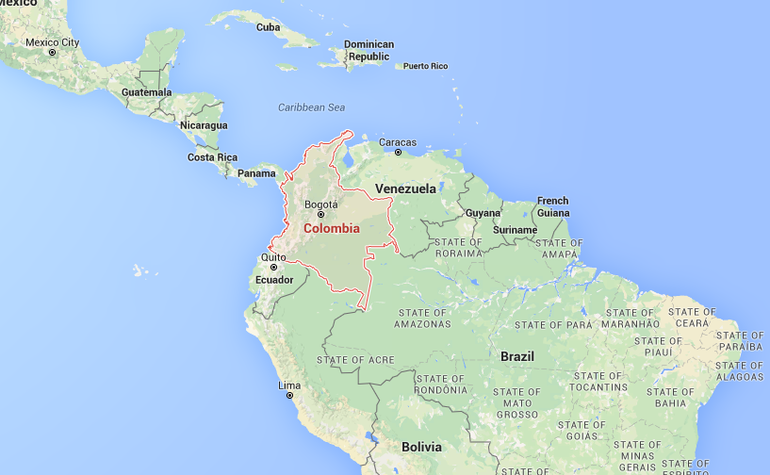Christian Solidarity Worldwide (CSW) has spoken out about the ongoing violations of freedom of religion or belief in Colombia.
It says these are expected to continue despite plans in March for a peace agreement between the FARC-EP guerrilla group and the Colombian government.
FARC is the Revolutionary Armed Forces of Colombia People's Army, a group formed in the 1960's which has continually disagreed with the government.
CSW says that it has spoken with church leaders from five regional departments, like states, where there is a strong presence of illegal armed groups.
The church leaders, some of whom had been forcibly displaced, said that there is still restrictions on freedom of religion or belief imposed by left-leaning guerrilla groups, including the FARC-EP and ELN.
They also commented that other neo-paramilitary groups, including the Urabeños, continue to threaten church leaders who refuse to cooperate with them and target churches for extortion.
A number of church leaders have reported receiving threats from guerrillas and neo-paramilitary group. They told CSW that in the months leading up the peace agreement that a number of groups have been moving into territory controlled by others.
Church leaders are not hopeful in their situation and say they expect to see little improvement whether a peace deal is signed or not.
One indigenous Christian leader said: "The guerrillas are making peace but as I see it, the peace they are making is for over there, but it makes it more complicated here."
A recent study reflected the concerns of church leaders, the Ideas for Peace Foundation (FIP) said that: "The power vacuum that the peace process with the FARC could generate is being filled before the signing of the peace agreement, especially in the municipalities in which it shares presence with other guerrilla groups and criminal factions of different sorts."
Mervyn Thomas, CSW Chief Executive, said: "While CSW welcomes the steps both the government of Colombia and FARC-EP have taken towards the peace agreement, which is due to be signed later this month, we remain deeply concerned at the situation on the ground in many parts of the country.
"These areas are essentially run by violent illegal armed groups, all of which restrict religious freedom and actively target church leaders.
"We call on the government of Colombia to take urgent steps to protect civilians and uphold the rule of law in areas of the country where the FARC-EP has until now maintained a strong presence, and we call on the international community to support them in these efforts.
"To do this, the government of Colombia must take strong action address persistent evidence of corruption and collusion with illegal armed groups by regional and local authorities."





